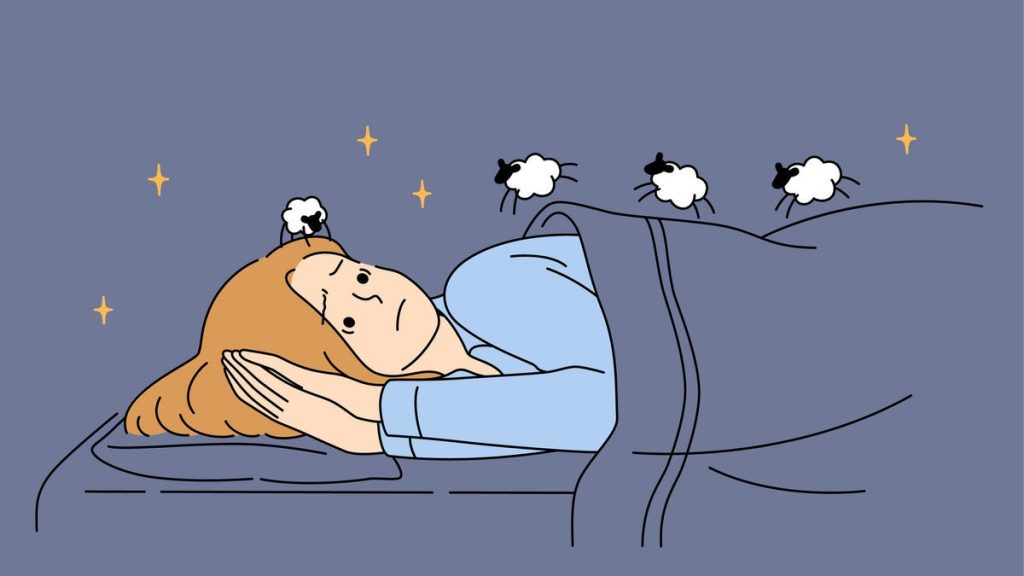Many Americans struggle with sleep issues, which can lead to various health problems. While there are many sleep hacks available, one method that is gaining popularity is cognitive shuffling. Cognitive shuffling is a cognitive behavioral therapy developed by Luc P. Beaudoin that involves focusing on random words, phrases, or images to help relax the mind and distract it from anxiety or stress. This technique aims to disrupt thought patterns and help individuals fall asleep faster.
To try cognitive shuffling, individuals can focus on a word with at least five letters that holds no emotional value, such as “bobber.” They can then think of words starting with each letter of the chosen word, spelling them out slowly and visualizing them. Another method is to allow the mind to drift and create random images with words like “cows” or “sandwiches.” Some people also focus on their heartbeat and think of words starting with the same letter as the original word. The key is to keep the thoughts random to help relax the mind and prepare it for sleep.
People who have tried cognitive shuffling have reported successful outcomes. Some have found it to be the only technique that works for them, allowing them to distract their brains and fall asleep. Dr. Scott Walker, a dermatologist, has praised the cognitive shuffle, likening it to shuffling a deck of cards in the brain and creating micro dreams that facilitate the transition into sleep. This practice has been effective in helping individuals relax their minds and prepare for sleep, making it a valuable tool for those struggling with insomnia.
Struggling to fall asleep is a common issue, but cognitive shuffling can provide a solution for many individuals. By allowing the mind to focus on random objects and letters, this technique triggers a process similar to micro dreams, helping the mind transition into sleep. Doctors and individuals alike have found success with cognitive shuffling, making it a valuable tool in the quest for better sleep. By trying this method, individuals may find relief from their sleep issues and achieve a more restful night’s sleep.
In conclusion, sleep problems are prevalent among Americans, affecting millions of individuals each night. Cognitive shuffling is a technique that has shown effectiveness in helping people relax their minds and fall asleep faster. By focusing on random words, phrases, or images, individuals can distract their brains from anxiety and stress, allowing them to transition into sleep more easily. This method has been praised by doctors and individuals who have found success with it, making it a valuable tool for those struggling with insomnia. Give cognitive shuffling a try and see if it can help you achieve a better night’s sleep.


